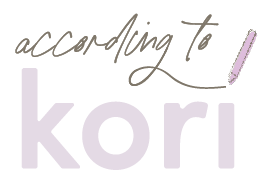5 Dope Theories I Got from Watching Black Panther
I saw Black Panther twice this past weekend — the first time was at a private screening the day before its Feb. 16 release. I sported a handmade tunic I bought from South Africa a few years back (click here to read all about my experience), a pair of black leather pants and a beret (which coincidentally had cat ears). The second time was with my family, and that time I took hella notes.
As a black woman, watching this movie was crazy exciting and empowering, for so many reasons. But as a blogger, it gave me heartburn ’cause this movie was loaded with post-worthy gems. Which can make writing about it slightly overwhelming because you gotta think about all the themes and topics you wanna cover along with all the over-achieving bloggers who published their posts a week ago. And now that more people have actually seen the movie, the floodgates of over-thinkpieces and ever-flowing Facebook threads have officially opened.
So to save myself the mental turmoil, I decided to compile five concepts I drew from the film in one blog post:
1. On black women being Black Panther’s true superpower. If you went through this entire film thinking Vibranium was King T’Challa’s ultimate source of power and strength, you missed it. All of it. Because if y’all were really paying attention, you would’ve noticed that literally everywhere this man went, he had AT LEAST one black woman right there by his side holding him down — like we always do. From his sister, Princess Shuri designing his entire superhero ensemble — and all of Wakanda’s latest technology — to Okoye using her feminine power and prowess to end the Wakandan civil war, to Queen Ramonda bringing T’Challa back to life, and finally, to Nakia fighting relentlessly to save her man and her country #atthesamedamntime. This is all indicative of the unwavering love, loyalty and power of the Black woman. It sends the powerful message that black men need our support and protection just as much as we need theirs.
2. On Vibranium being a metaphor for the strength, intellect and resilience of black people. Do I really need to explain this one? I mean, it was LITERALLY running through their veins.
3. On Erik Killmonger personifying the plight of the Black community. He may have technically been the villain, but he was a deeply layered depiction of what it means to be black in modern-day society (and dude was dropping hella gems). Erik is a personification of the Black community’s deep-rooted struggles with oppression, lack of resources and identity. The murder of his father, Prince N’Jobu, sheds light on the tragic epidemic of black children being raised without a father at the hands of violence. And King T’Chaka and Zuri leaving Erik behind to grieve the loss of his father is a heartbreaking representation of society’s abandonment of our black children. As a result of this abandonment, Erik grows up with rage and resentment in his heart, using violence and a mission to avenge his father’s death as a coping mechanism. On the surface, he is seen as the villain — very much like how black men are viewed by society — but at the root of it all, Erik is a black man seeking refuge, resources and justice for his people. His half black, half Wakandan genetic makeup (sidenote: does anyone know what happened to his mother?) and his long-awaited battle with King T’Challa is symbolic of the present-day identity crisis and conflict between Black Americans and Africans. I’m just gonna stop here ’cause I could literally go all day with this.
4. On how the isolation of the Wakandan empire represents the hoarding of resources amongst wealthier Blacks. Wakanda’s isolation from the rest of the world made me think of how a lot of black folks be acting once we make it out the hood. Many of us — keyword many, not all — have the tendency to turn our backs on our own communities as we pursue better education, lifestyle and opportunities. And much like the people of Wakanda, once we gain access to more resources, we try to hide it and keep it all to ourselves when we should really be utilizing our connections and resources to help our less fortunate brothers and sisters. In the remarkable words of King T’Challa, “The wise build bridges and the foolish build barriers.” Quote of the century.
5. On how this movie lowkey reminded me of The Lion King. Another thing I noticed was how much this movie reminded me of The Lion King. Especially in the scenes where T’Challa was speaking with his father. If Black Panther were TLK, T’Challa would clearly be Simba, King T’Chaka is Mufasa, Zuri is Rafiki, Nakia is Nala, Queen Ramonda is Sarabi, Erik Killmonger is Scar and Princess Shuri is just the GOAT.
Any other interesting concepts or themes you picked up on that I missed? Let’s discuss!



